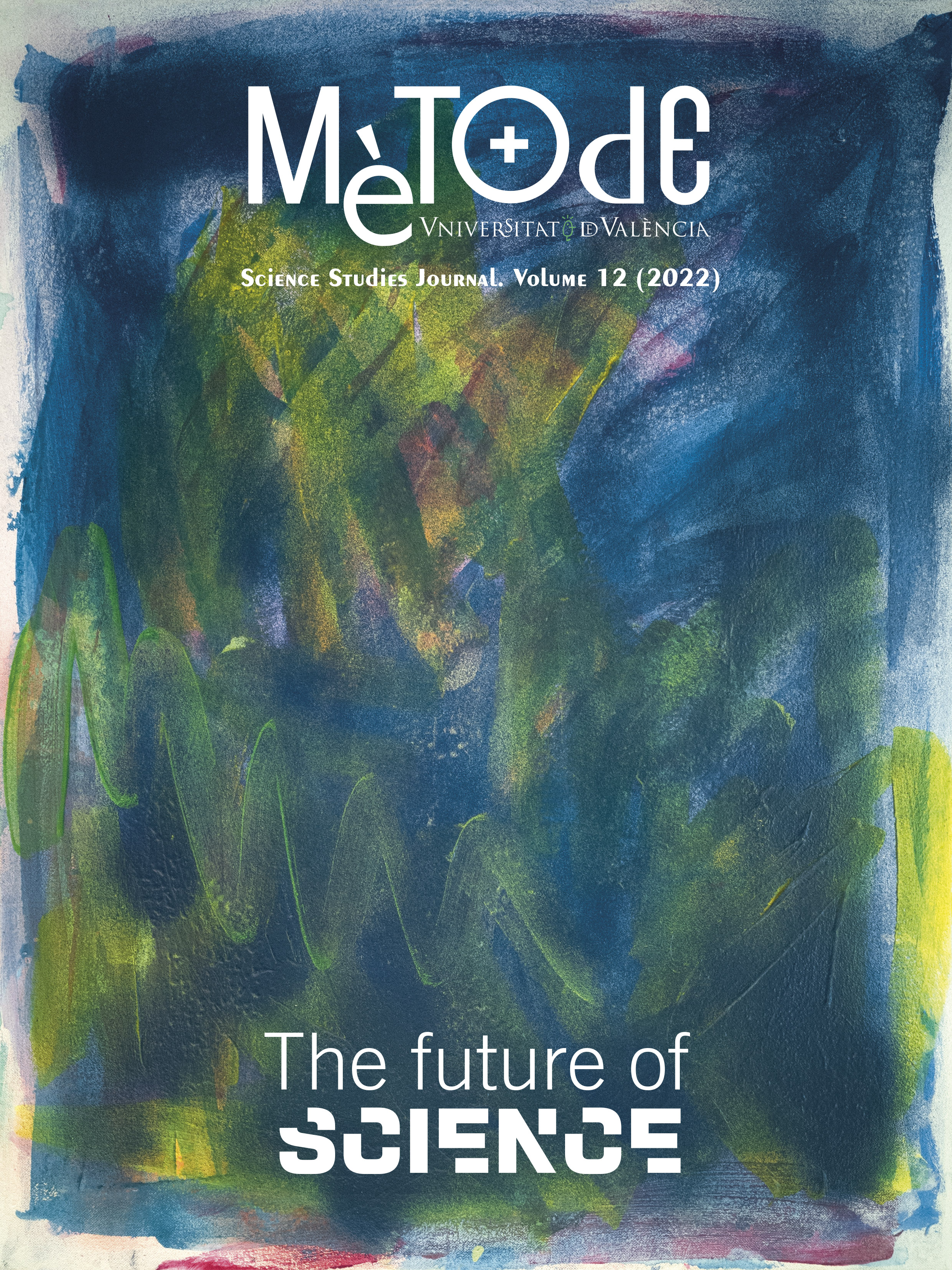El cambio climático no es igual para todos: Contribuciones desde los estudios feministas
DOI:
https://doi.org/10.7203/metode.12.20508Palabras clave:
adaptación al cambio climático, maladaptación, investigación feminista, interseccionalidad, vulnerabilidad contextual Resumen
Resumen
Los impactos del cambio climático no son homogéneos para todas las personas; no todos los grupos sociales se ven afectados de la misma forma. Esto se debe a la existencia de una vulnerabilidad diferencial y contextual que con mucha frecuencia está relacionada con la desigualdad. En este sentido, el género es un eje clave de desigualdad relacionado con otros sistemas de poder y marginación, que provoca diversos grados de vulnerabilidad y capacidad de adaptación al cambio climático. Por tanto, integrar una perspectiva de género en la investigación sobre el cambio climático puede ayudarnos a examinar las estructuras y relaciones de poder. En este artículo se aportan varios ejemplos de impactos diferenciales del cambio climático y cómo los estudios feministas visibilizan las causas subyacentes de la vulnerabilidad, así como la capacidad de agencia de los grupos marginalizados en la propuesta de alternativas.
 Descargas
Descargas
 Citas
Citas
Andersson, E., & Gabrielsson, S. (2012). ‘Because of poverty, we had to come together’: Collective action for improved food security in rural Kenya and Uganda. International Journal of Agricultural Sustainability, 10(3), 245–262. https://doi.org/10.1080/14735903.2012.666029
Arora-Jonsson, S. (2011). Virtue and vulnerability: Discourses on women, gender and climate change. Global Environmental Change, 21(2), 744–751. https://doi.org/10.1016/j.gloenvcha.2011.01.005
Atteridge, A., & Remling, E. (2017). Is adaptation reducing vulnerability or redistributing it? Wiley Interdisciplinary Reviews: Climate Change, 9(1), e500. https://doi.org/10.1002/wcc.500
Benjaminsen, G., & Kaarhus, R. (2018). Commodification of forest carbon: REDD+ and socially embedded forest practices in Zanzibar. Geoforum, 93, 48–56. https://doi.org/10.1016/j.geoforum.2018.04.021
Bradshaw, S., & Linneker, B. (2009). Gender perspectives on disaster reconstruction in Nicaragua: Reconstructing roles and relations? In E. Enarson & D. P. G. Chakrabarti (Eds.), Women, gender and disaster: Global issues and initiatives (1a edición, pp. 75–88). SAGE Publications Pvt. Ltd. http://doi.org/10.4135/9788132108078.n6
Carter, T. R., Fronzek, S., Inkinen, A., Lahtinen, I., Lahtinen, M., Mela, H., O’Brien, K. L., Rosentrater, L. D., Ruuhela, R., Simonsson, L., & Terama, E. (2014). Characterising vulnerability of the elderly to climate change in the Nordic region. Regional Environmental Change, 16(1), 43–58. https://doi.org/10.1007/s10113-014-0688-7
Carvalho, L. M. D., & Bógus, C. M. (2020). Gender and social justice in urban agriculture: The network of agroecological and peripheral female urban farmers from São Paulo. Social Sciences, 9(8), 127. https://doi.org/10.3390/socsci9080127
Djoudi, H., & Brockhaus, M. (2011). Is adaptation to climate change gender neutral? Lessons from communities dependent on livestock and forests in northern Mali. International Forestry Review, 13(2), 123–135. https://doi.org/10.1505/146554811797406606
Djoudi, H., Locatelli, B., Vaast, C., Asher, K., Brockhaus, M., & Basnett Sijapati, B. (2016). Beyond dichotomies: Gender and intersecting inequalities in climate change studies. Ambio, 45(S3), 248–262. https://doi.org/10.1007/s13280-016-0825-2
Eriksen, S. H., Nightingale, A. J., & Eakin, H. (2015). Reframing adaptation: The political nature of climate change adaptation. Global Environmental Change, 35, 523–533. https://doi.org/10.1016/j.gloenvcha.2015.09.014
Gay-Antaki, M. (2016). “Now We Have Equality”: A feminist political ecology analysis of carbon markets in Oaxaca, Mexico. Journal of Latin American Geography, 15(3), 49–66. https://doi.org/10.1353/lag.2016.0030
Laska, S., & Morrow, B. H. (2006). Social vulnerabilities and hurricane Katrina: An unnatural disaster in New Orleans. Marine Technology Society Journal, 40(4), 16–26. https://doi.org/10.4031/002533206787353123
Mustafa, D., & Wrathall, D. (2011). Indus basin floods of 2010: Souring of a Faustian bargain? Water Alternatives, 4(1), 72–85. http://www.water-alternatives.org/index.php/volume4/v4issue1/127-a4-1-5/file
Nightingale, A. J. (2011). Bounding difference: Intersectionality and the material production of gender, caste, class and environment in Nepal. Geoforum, 42(2), 153–162. https://doi.org/10.1016/j.geoforum.2010.03.004
Oliver, B. (2016). “The Earth gives us so much”: Agroecology and rural women’s leadership in Uruguay. Culture, Agriculture, Food and Environment, 38(1), 38–47. https://doi.org/10.1111/cuag.12064
Paprocki, K. (2018). Threatening dystopias: Development and adaptation regimes in Bangladesh. Annals of the American Association of Geographers, 108(4), 955–973. https://doi.org/10.1080/24694452.2017.1406330
Röhr, U. (2006). Gender and climate change. Tiempo, 59, 3–7. https://www.preventionweb.net/files/9739_tiempo59low.pdf
United Nations Viet Nam & Oxfam Viet Nam. (2009). Responding to climate change in Vietnam. Opportunities for improving gender equality. https://ciaotest.cc.columbia.edu/wps/oxfam/0018939/f_0018939_16199.pdf
Vincent, K. E., Tschakert, P., Barnett, J., Rivera-Ferre, M. G., & Woodward, A. (2014). Cross-chapter box on gender and climate change. In C. B. Field, V. R. Barros, D. J. Dokken, K. J. Mach, M. D. Mastrandrea, T. E. Bilir, M. Chatterjee, K. L. Ebi, Y. O. Estrada, R. C. Genova, B. Girma, E. S. Kissel, A. N. Levy, S. MacCracken, P. R. Mastrandrea, & L. L. White (Eds.), Climate change 2014: Impacts, adaptation, and vulnerability. Part A: Global and sectoral aspects. Contribution of Working Group II to the Fifth Assessment Report of the Intergovernmental Panel on Climate Change (pp. 105–107). Cambridge University Press.
Wekesah, F. M., Mutua, E. N., & Izugbara, C. O. (2019). Gender and conservation agriculture in sub-Saharan Africa: A systematic review. International Journal of Agricultural Sustainability, 17(1), 78–91. https://doi.org/10.1080/14735903.2019.1567245
Westholm, L. (2016). Fruits from the forest and the fields: Forest conservation policies and intersecting social inequalities in Burkina Faso’s REDD+ program. International Forestry Review, 18(4), 511–521. https://doi.org/10.1505/146554816820127578
Descargas
Publicado
Cómo citar
-
Resumen2314
-
PDF 967
Número
Sección
Licencia
![]()
Todos los documentos incluidos en OJS son de acceso libre y propiedad de sus autores.
Los autores que publican en esta revista están de acuerdo con los siguientes términos:
- Los autores conservan los derechos de autor y garantizan a Metode Science Studies Journal el derecho a la primera publicación del trabajo, licenciado bajo una licencia de Creative Commons Reconocimiento-NoComercial-SinObraDerivada 4.0 Internacional, que permite a otros compartir el trabajo con un reconocimiento de la autoría del trabajo y citando la publicación inicial en esta revista.
- Se permite y se anima a los autores a difundir sus trabajos electrónicamente a través de páginas personales e institucionales (repositorios institucionales, páginas web personales o perfiles a redes profesionales o académicas) una vez publicado el trabajo.





